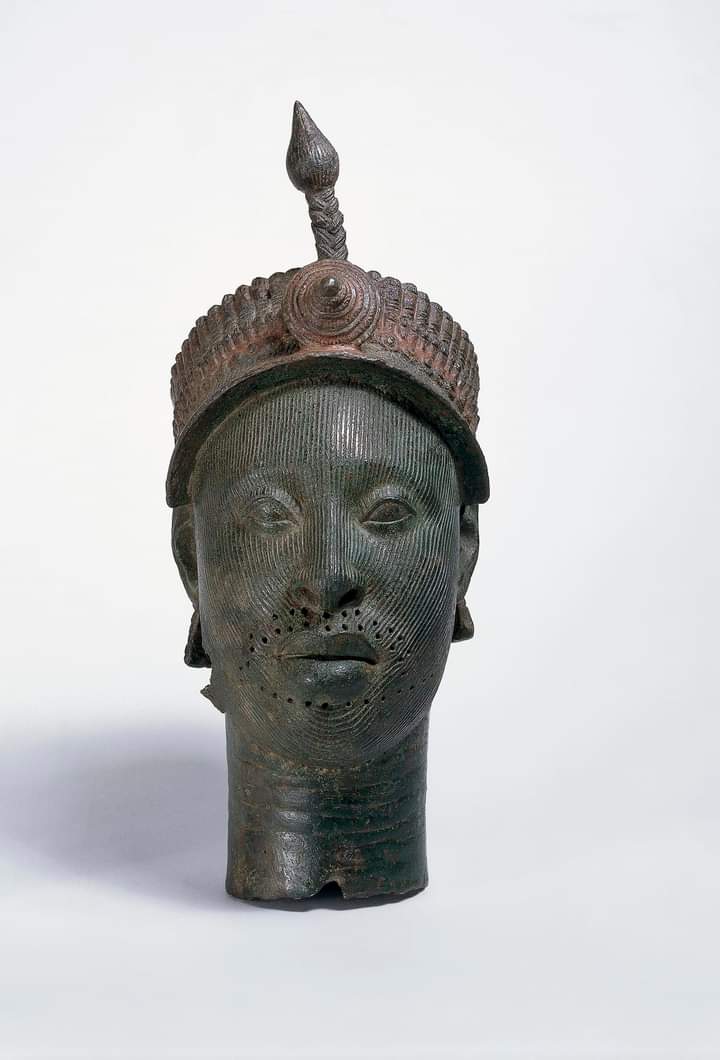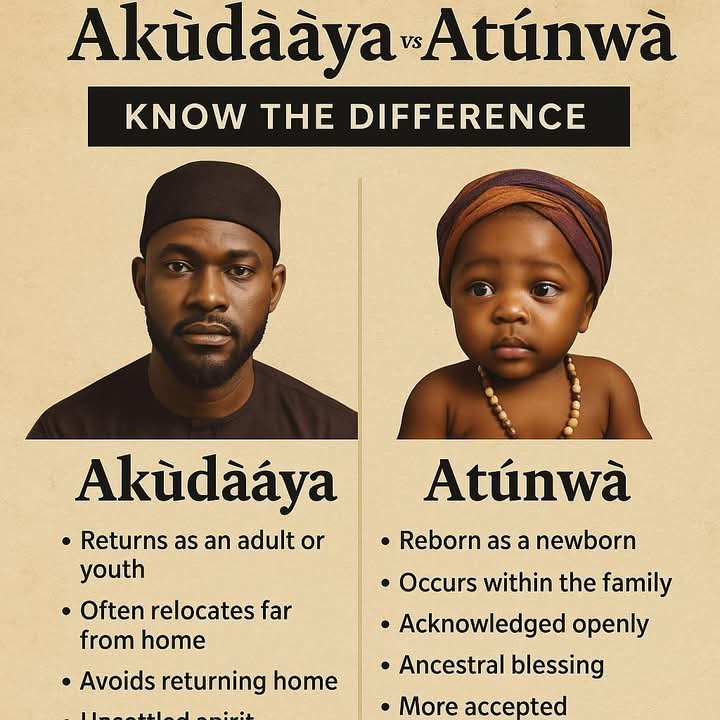ÀKÚDÀÁYÀ vs ÀTÚNWÁ: Know the Difference
ÀKÚDÀÁYÀ vs ÀTÚNWÁ: Know the Difference
In Yoruba metaphysics, not all who die truly leave. Some return—but not all returns are the same. Let’s break down the two main types of “returning souls”: Akùdàáyà and Atúnwá.
1. ÀKÚDÀÁYÀ — “The Dead Who Lives Again in Disguise”
Definition:
Akùdàáyà (from “A ku dá ayà” meaning “someone who died and yet breathes again”) refers to a spirit being who continues to live among the living after physical death but often in secret or far from home.
Things you need to know.
• They do not return as newborns, but appear as full adults or children with past memories.
• They often relocate far from their original home to live an entirely new life.
• They avoid returning home, and if forced, they often disappear mysteriously.
• Some marry, raise families, even acquire wealth, yet remain spiritually unsettled.
• Their presence is usually detected through uncanny resemblances, confessions, or strange behaviors.
• Islamic belief rejects Akùdàáyà, often labeling them as Jinns or wandering spirits.
Examples:
• A soldier who dies but reappears years later in another city, joins the army again, and disappears when taken back home.
• A man who takes a new wife abroad, but vanishes when she insists on meeting his family in Nigeria.
2. ÀTÚNWÁ — “The Rebirth Within the Family or Lineage”
Definition:
Àtúnwá (from “À tún wá” meaning “we have returned again”) is the reincarnation of a dead relative or ancestor through childbirth, typically within the same family.
Things you need to know.
• Occurs at birth, especially among children identified with spiritual marks (abiku or oro omo).
• The child may speak or behave like the deceased, or recall memories that baffle the family.
• Families often name them Babatunde, Yetunde, Kokumo, Iyabo, etc., signaling return.
• It is welcomed culturally, and ceremonies are held to acknowledge their spiritual identity.
• It aligns with Yoruba belief in ancestral cycles and the continuity of the soul.
• Unlike Akùdàáyà, Atúnwá is not secretive, but celebrated as a form of ancestral blessing.
Examples:
• A baby who shares birthmarks, behaviors, or memories of a deceased grandmother.
• A child who is named Yetunde (“Mother has returned”) and shows traits of the late matriarch.
Have you ever encountered an Akùdàáyà or seen signs of Atúnwá in your family?
Share your stories below and let us preserve our cultural wisdom. Interesting stories will feature in our next post.
We are the children of Odùduwà. Our stories are not fiction, they are keys to our spiritual DNA.




